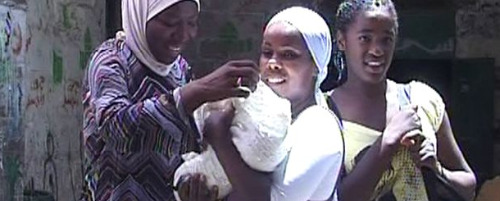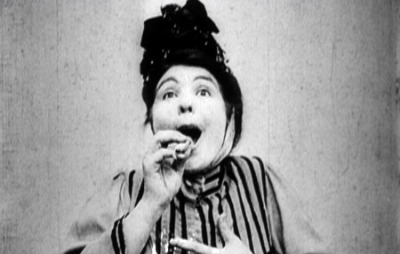The stars are both behind the cameras and onscreen at Israel’s annual women’s film festival, which this year focuses on women who live with ongoing, national conflict.

When the curtain rose on the International Women’s Film Festival, Israel this week at the Chen Cinema in Rehovot, viewers could choose from more than 50 movies made by women – nearly half of them Israeli – that focus on the theme of females living in war zones.
So far, it’s the seventh and largest festival to be produced by Anat Shperling Cohen and Naama Prizant Orpaz, founders of the Women in the Picture Association. The women behind the camera are no less the stars of these films than the women who appear onscreen.
“Our goals are to expose women filmmakers to the Israeli audience and to advance women filmmakers in Israel,” Cohen tells ISRAEL21c shortly before the September 1 opening gala at the Weizmann Institute of Science, also located in central Israel, in Rehovot. “In Israel, like in the rest of the world, less than five percent of directors are women, and we want to promote their work.”
Cohen directed documentaries and worked as a television journalist before co-founding the Women in the Picture Association in 2004. “We started out very small, with a festival lasting just two-and-a-half days. Now it’s a week long, and thousands of people attend.”
Women without Men
Each annual festival centers on a different theme. Last year, it was the connection between women and money. This year, the collection of contemporary films mainly depicts Balkan or Israeli women living in the shadow of national conflict.
The film that opened the festival, ‘Women Without Men,’ by Iranian artist and director Shirin Neshat, follows four women against the backdrop of Iran’s 1953 CIA-backed coup d’état. It is Neshat’s Israeli premiere and will be screened again tomorrow and also on September 5.
“We were looking for the most refreshing, original new points of view,” says Cohen. “We don’t bring any films that will be released in Israel, so this is the only opportunity to view them.” Following the festival, there will be limited screenings at cinemas in Herzliya, Holon, Jerusalem and Sderot.
Cohen’s organization contacts women’s film festival producers all over the world and invites distribution companies to send works from the last decade or two, in keeping with the theme. The selection committee views hundreds of entries, choosing films solely “from the perspective of what is good cinema,” she states.
“We do get political reactions sometimes,” Cohen admits. “If a woman doesn’t want to show her film here, we don’t. But we will say to her, ‘If you want to be a part of changing our society, you should show your film.’ We give a voice to women from all kinds of places and viewpoints, as long as their films are good.”

Changing social perceptions of women
The festival schedule includes public meetings with filmmakers, artist workshops, lectures, and seminars. American film scholar Alison McMahan will present a lecture and Q&A around screenings of 15 restored and digitized films from 1900 to 1913 made by trailblazing female director Alice Guy Blaché.
This presentation is the result of collaboration between Women in the Picture, the US Library of Congress, and the Whitney Museum of American Art in New York, relates Karin Rywkind Segal, head of research and content development for the foreign films in the festival.
The final night will kick off a memorial project dedicated to Miriam Mizrahi and Batya Makov, the female founders of Rehovot, which is celebrating its 120th anniversary as the ‘City of Science and Culture.’
Rehovot Mayor Rahamim Maloul said that Women in the Picture’s partners have learned that “beyond ideology, the festival [has] created a public discourse with a power to change, advance, and develop social perceptions of women’s status, ability, and rights in society.”
Under the auspices of the Ministry of Education, the association last year gathered 50 teachers in the southern city of Beersheba to hear the filmmakers’ perspectives on the theme of women and money. This year, Cohen plans to organize discussions about women in conflict zones for teachers in other parts of the country as well.
With financing from two Israeli cinema foundations, Women in the Picture also awards NIS 50,000 scriptwriting grants annually to several promising female playwrights: “We think that starting with the script is the best option for changing the film industry in Israel,” Cohen concludes.













